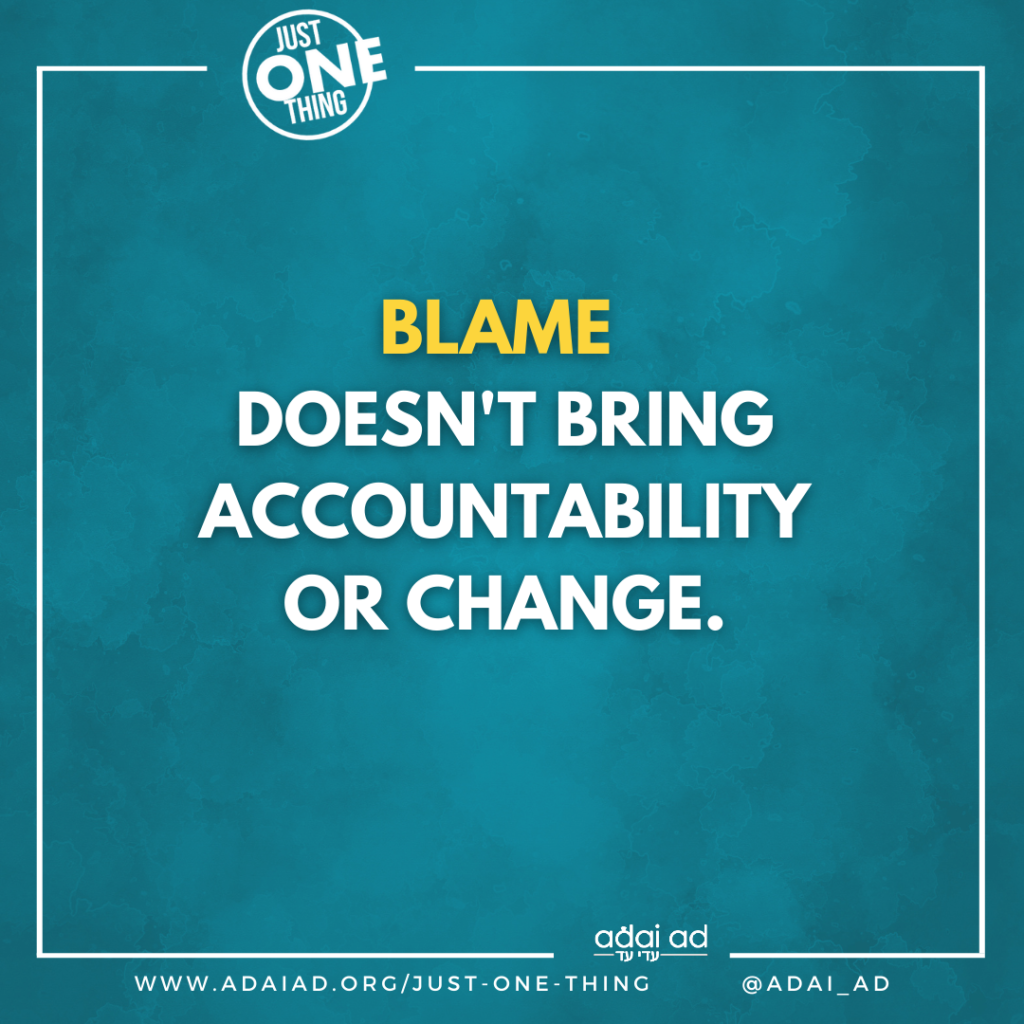Blaming someone rarely leads to accountability or real change. Why? Because blame makes people defensive. Instead of feeling accountable, they start looking for excuses or someone else to blame. It shuts down productive conversations and growth.
Instead, create an atmosphere of understanding. For example, instead of saying, “You don’t care enough to do [something important to you],” try, “This is important to me, and I notice it’s not happening. What’s keeping you from doing it?” This approach opens the door for honest discussion and problem-solving.
Even when expressing your own feelings, shifting from blame to curiosity helps. Instead of, “When I think about bringing up XYZ topic, I feel like I will get shut down, so I don’t bother anymore.” try, “When we talk about this, it seems to upset you. What’s going on for you?” It’s all about setting up space for accountability and figuring out how to move forward together.
In a different scenario, you might say, “I notice we haven’t been spending as much time together lately. Is there something going on that’s been keeping us from connecting?” This encourages dialogue and seeks to understand, rather than blame.


